Interpeace welcomes Nasir Andisha of Afghanistan to our Advisory Council, Hind Kabawat of Syria-Canada and Kate Gilmore of Australia to our Governing Board
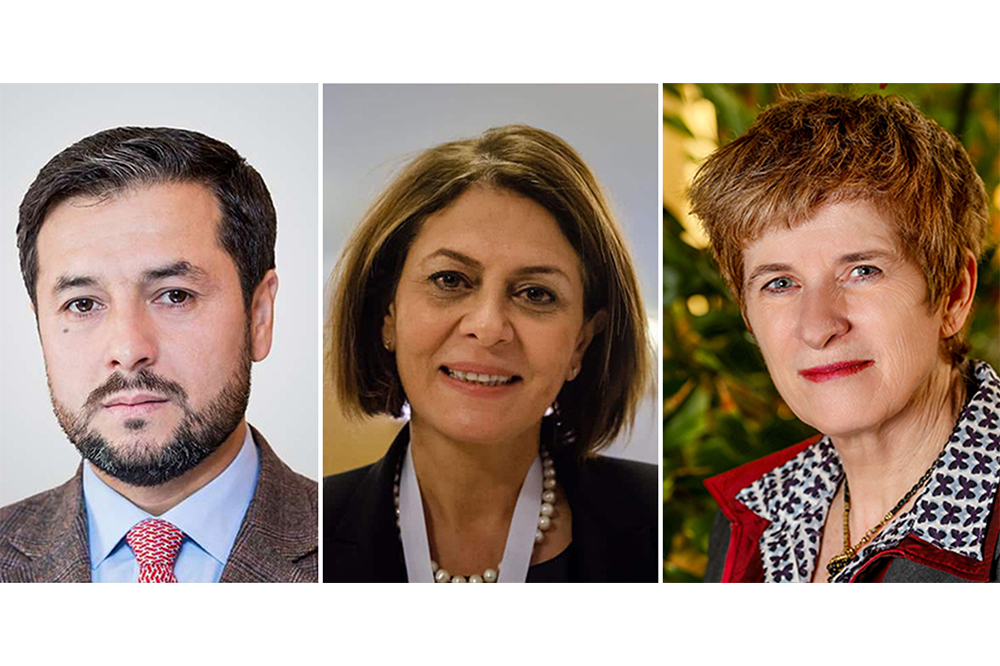
We are honored to welcome Ambassador Nasir A. Andisha, Permanent Representative of Afghanistan to the UN in Geneva to Interpeace’s Advisory Council and pleased to announce the appointments of two new members to our Governing Board: Hind Kabawat and Kate Gilmore.
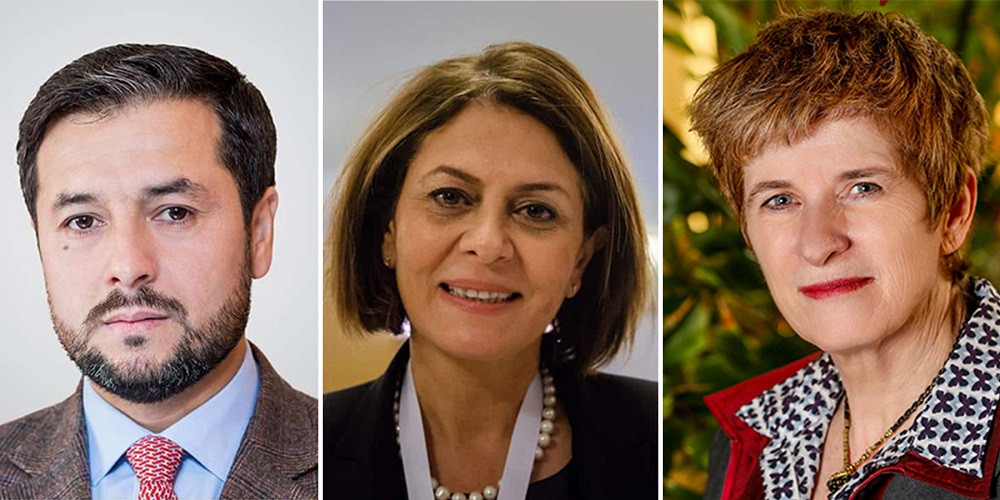
Interpeace’s Advisory Council
The Advisory Council is a high-level statutory body that provides the organization with key strategic advice and guidance on peacebuilding policy and practice. It plays a key role in guiding the organization and serves as a testing ground for developing ideas.
“Our world is facing increased conflicts and tension, hence the efforts for building and sustaining peace have never been more relevant than they are now. I am delighted to join the Interpeace’s Advisory Council composed of esteemed and experienced colleagues and contribute to Interpeace’s much-needed mission,” says Ambassador Andisha. “I particularly welcome the organization’s approach in supporting the international community, states, and organizations to play a more effective role in peacebuilding efforts around the world and in shaping more effective peace processes.”
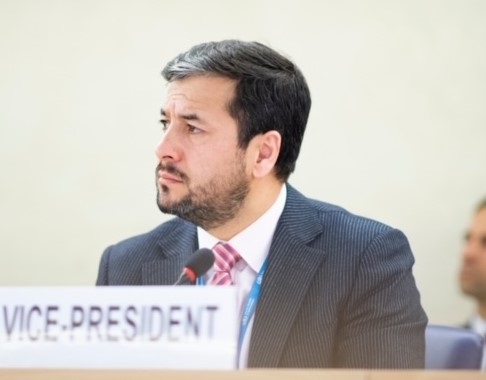
Dr. Nasir A. Andisha is the Ambassador and Permanent Representative of Afghanistan to the UN in Geneva. Prior to his appointment as Ambassador, Dr. Andisha served as the Deputy Foreign Minister (2015-2019) and Ambassador of Afghanistan to Australia, New Zealand, and the Republic of Fiji (2011-2015).
Between 2009-2011, Dr. Andisha served as the Director General of the Fifth Political Division (US, Canada, Australia, and New Zealand) and from 2006 to 2007 he was the Director of Multilateral Economic Relations and International Financial Institutions. Ambassador Andisha has also worked at the Energy Charter Secretariat in Brussels and served at the Permanent Mission of Afghanistan at the U.N. Headquarters in New York City. Before joining the Foreign Service, he worked with the International Committee of the Red Cross as a field officer in Northern Afghanistan.
Interpeace’s Governing Board
We are also pleased to welcome Hind Kabawat and Kate Gilmore, who have been appointed to join the Governing Board of Interpeace.
Interpeace’s Governing Board is constituted by prominent individuals from the government, international, and business sectors. It is the highest decision-making body of the organization and plays a key role in defining Interpeace’s overall strategy.
Hind Kabawat is the Deputy Head of the Syrian Negotiation Commission’s Office in Geneva, formerly known as the High Negotiations Committee (HNC). In her position at the then HNC, she participated in all eight rounds of the Geneva peace talks on Syria in 2017.
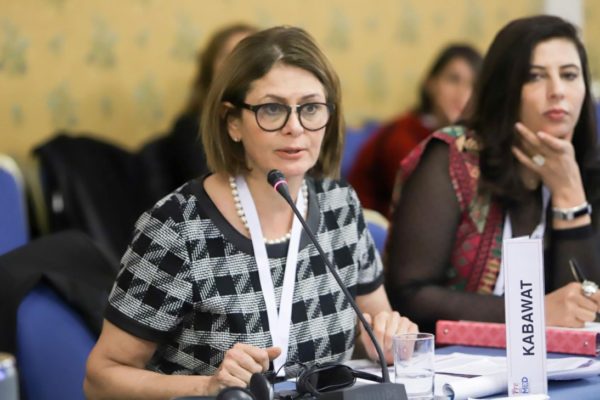
Kabawat also serves as Director of Interfaith Peacebuilding at George Mason University’s Center for World Religions, Diplomacy, and Conflict Resolution (CRDC), where she directs CRDC’s Syria program. She is also a founding member of Tastakel, a women’s center dedicated to using non-violence and dialogue to address the ongoing conflict in Syria.
Until 2015, Kabawat was a Senior Program Officer at the United States Institute of Peace. She formerly served as an advisory board member and consultant for the World Bank and is a frequent contributor to the Huffington Post. In 2007, she was named a Peacemaker in Action by the Tanenbaum Center for Interreligious Understanding. In 2009, Kabawat received the Public Diplomacy Award from CRDC at George Mason University.
Kate Gilmore is a former United Nations Deputy High Commissioner for Human Rights. Prior to joining Office of the United Nations High Commissioner for Human Rights (OHCHR), Gilmore was Assistant Secretary General and Deputy Executive Director for Programmes with the United Nations Population Fund (UNFPA).
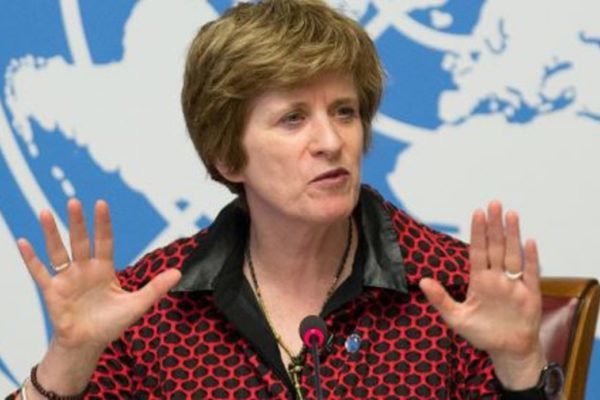
In previous years, Gilmore worked in a wide range of public sector and NGO positions. These include CEO of Broadmeadows Community Health Service, manager of community care in the Royal Women’s Hospital Australia, where she established Australia’s first Centre Against Sexual Assault and helped establish the Victorian Foundation for Survivors of Torture (Foundation House). She was also National Director of Amnesty International Australia and Executive Deputy Secretary General of Amnesty International.
In Australia, she was granted honorary appointments to provincial and national public policy and law reform processes, including membership of the country’s first National Committee on Violence Against Women.
Their broad expertise in peace, human rights, women’s rights, public policy, and diplomacy will be a valuable addition to Interpeace’s Governing Board and Advisory Council, in order to strengthen our commitment to continue working towards sustainable peace.
